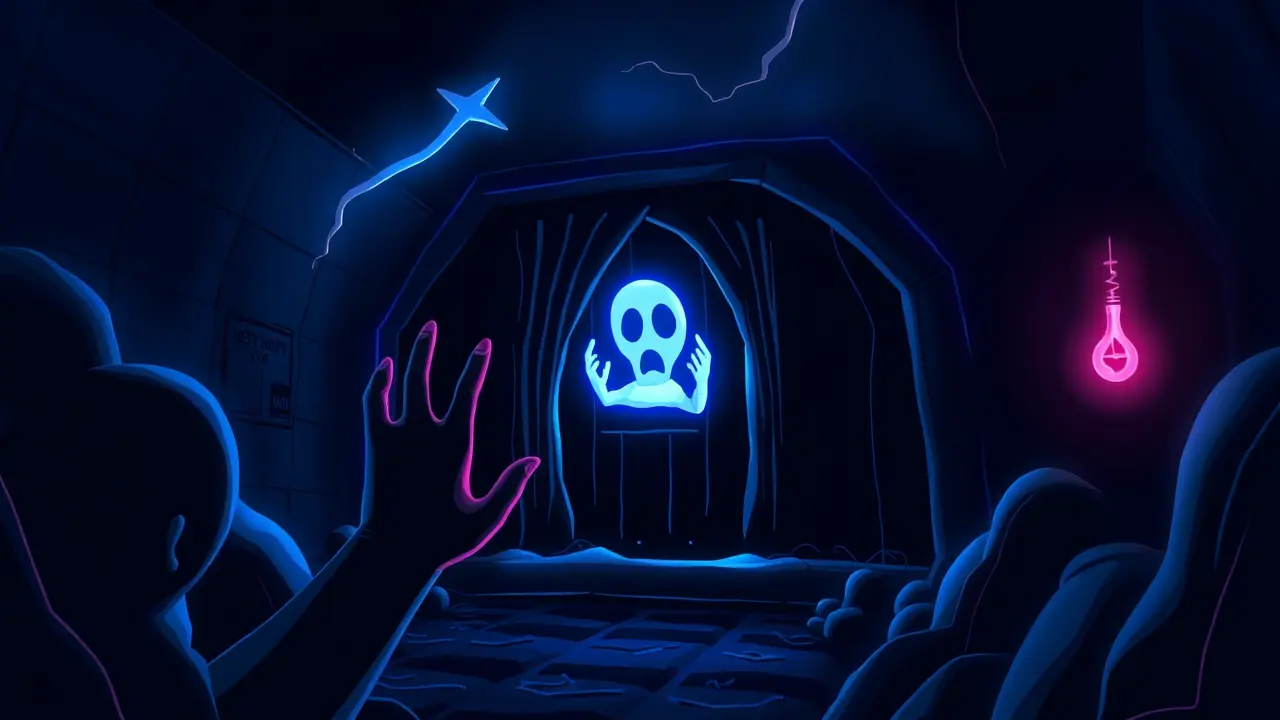The Science of Why We Enjoy Being Scared
There’s something deeply human about the paradox of fear, that peculiar cocktail of dread and delight we willingly sip when we step into a haunted house or press play on a horror film. We curl into ourselves, bracing for the jump scare we know is coming, our hearts hammering a frantic rhythm against our ribs, and yet, when it’s over, we often find ourselves laughing, exhilarated, even craving another round.This strange attraction to controlled terror is a fascinating window into the human psyche, a phenomenon that psychologists and neuroscientists have been untangling for years. Dr.Frederic Bertley and other experts point to a compelling biological and psychological dance happening within us. When we are safely scared, our body’s ancient survival system kicks in: the amygdala sounds the alarm, adrenaline and cortisol flood our system, and our senses become hyper-acute.This is the classic fight-or-flight response, but here’s the crucial twist—our prefrontal cortex, the logical part of our brain, is simultaneously assessing the situation and confirming that we are, in fact, in no real danger. This cognitive reassurance creates a unique psychological safe space.The intense physiological arousal we experience—the racing heart, the quickened breath—is then reinterpreted by our brain not as pure terror, but as excitement or thrill. It’s not unlike the feeling a seasoned athlete gets before a big game or a performer feels waiting in the wings; the body is in a state of high alert, but the mind channels that energy into a peak experience.This process is often explained by the excitation transfer theory, where the residual physiological arousal from the scare amplifies the subsequent feeling of relief and pleasure, making the payoff that much sweeter. On a social level, sharing a frightening experience acts as a powerful bonding agent.The collective gasp in a movie theater, the shared scream on a rollercoaster, the relieved laughter afterwards—these moments forge a sense of camaraderie and shared vulnerability. We look to the reactions of others to help us calibrate our own, and seeing that they are equally scared, and equally okay, reinforces our own sense of safety and belonging.This is why horror movies are so often a first-date staple or a staple of friend groups; we are not just sharing a story, we are sharing a physiological and emotional journey. Furthermore, successfully navigating a simulated threat can be a potent form of mastery, a way to practice emotional resilience in a low-stakes environment.It’s a rehearsal for life’s real anxieties, a way to prove to ourselves that we can handle intense feelings and emerge unscathed, even stronger. From a cultural perspective, our appetite for fear has been a constant throughout history, evolving from campfire ghost stories to Gothic novels to the multi-billion-dollar horror industry of today.It reflects our eternal fascination with the unknown, the taboo, and the boundaries of our own mortality. In a world often filled with mundane, predictable routines, a controlled dose of fear can be a powerful antidote to boredom, a way to feel truly, vibrantly alive in the moment, reminding us of our own capacity for feeling and survival.
It’s quiet here...Start the conversation by leaving the first comment.
© 2025 Outpoll Service LTD. All rights reserved.
